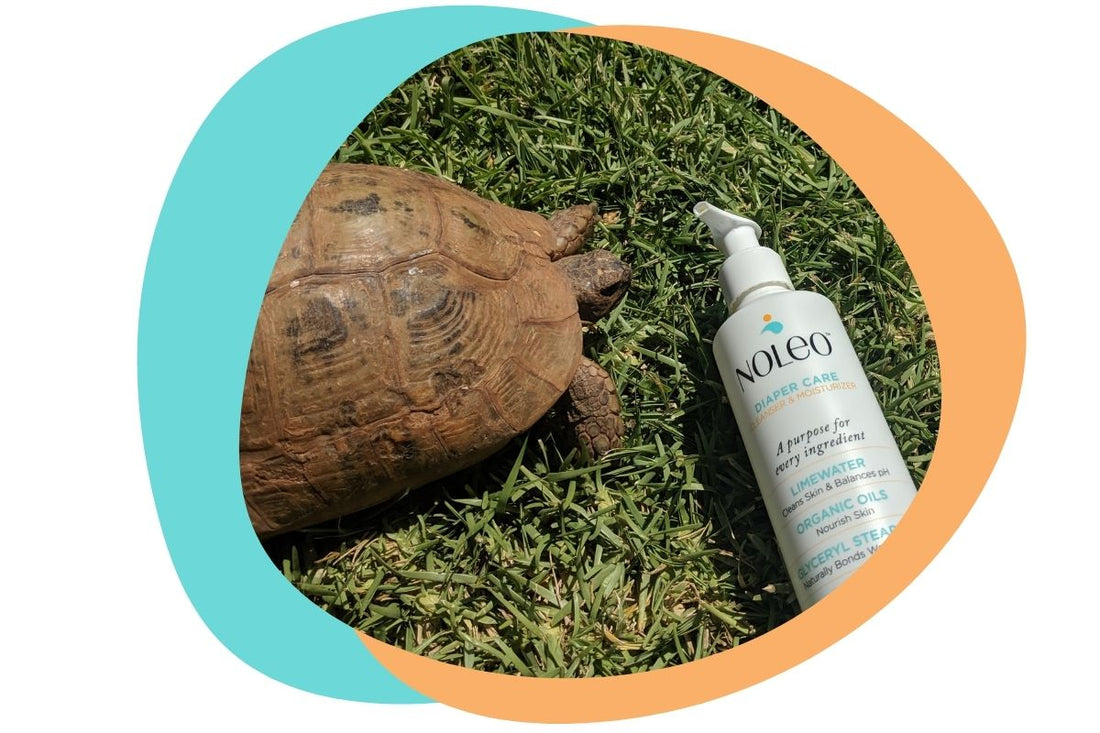
How the Baby Care Industry Harms the Environment — and Babies
Share
Environmentally friendly products are growing in today’s market, thanks to increased demand and a call for sustainability and accountability on behalf of every industry. However, many issues with sustainability persist, despite the decline of our environment. The baby care industry is no exception to this. While we all know babies are innocent, you may be surprised to learn that many of the products made for them are not.
Chemicals and synthetics in baby care products
Compared to the 20th century, millions more chemicals exist nowadays. Of these millions, few are regulated, and even fewer are actually restricted. A large portion of these chemicals, new and old, are toxic to our health — and the health of the environment. Not only can chemicals endanger the health of your baby, but the release of chemicals during the production, use, and disposal of certain baby care products can cause great harm to the environment. Synthetic materials also linger in our ecosystems and play a major role in pollution. Nonbiodegradable products end up in landfills, our oceans, and can even seep into the soil, disturbing innumerous species of living creatures and plants.
The carbon footprint of baby care products
Several common baby products take a massive toll on the environment during production. For example, most disposable diapers contain a superabsorbent polymer. While they allow the diapers to absorb much more liquid than reusable diapers, the polymer is toxic to the environment and our bodies. Not to mention, disposing of multiple diapers a day puts tons of plastic waste into the environment — 145 tons by the time your child turns one, to be exact. The disposable diaper production process also uses billions of gallons of fossil fuel each year.
As for baby formula, a single kilogram of powdered milk for babies requires about 4,000 liters of water. While breastfeeding is the norm for several other countries, the U.S. has refused efforts to advise all new mothers to breastfeed in an effort to protect the $70 billion infant formula industry. Breast milk is one of the most organic food sources and produces close to zero waste. On the other hand, formula must be produced, packaged, shipped, and distributed, adding up to a much higher carbon footprint than breastfeeding.
Baby wipes are another common baby care product that end up in landfills by the millions and billions. If baby wipes are instead flushed down the toilet, they can pollute our sewers, waterways, and oceans — and most often do. Baby wipes themselves are made of plastic fibers that never fully biodegrade, and the chemicals in wipes are just as harmful to the environment as they are to your baby.
Packaging for baby care products takes yet another toll on the environment. Polyethylene is the most common synthetic plastic in use today. Found in plastic bottles, plastic films, and other plastic packaging components, over 100 million tons of polyethylene are produced every year. A typical diaper care routine of baby wipes, lotion, and disposable diapers amounts to more polyethylene and synthetic plastic waste than using a 3-in-1 diaper care product.
How can you reduce your environmental impact while caring for a baby?
There are several ways to reduce your waste when choosing methods of caring for a little one, including…
- Use reusable diapers — Despite the few downsides of cloth diapers, one thing is for sure: reusable diapers significantly decrease the amount of waste and chemicals you’re putting into the environment. They only need to be replaced when they become too dirty for another use or fall apart.
- Stay away from chemical-laden baby products — Not only are chemical-free products healthier for your baby, but they keep harmful chemicals out of landfills and the environment. Choose natural products with ingredients you can pronounce and look for certifications that designate organic options. Unlike chemical-laden baby care products, NOLEO® 3-in-1 Diaper Care checks all the boxes when it comes to natural, organic ingredients that are gentle on baby’s sensitive skin. With all the existing chemicals in the world, the best thing you can do is be a smart consumer and protect your baby from exposure to excessive chemicals.
- Opt for organic products that serve multiple purposes — 3-in-1 products are common in the haircare industry, but they are also a fantastic way to reduce waste when caring for your baby. NOLEO® 3-in-1 Diaper Care takes the place of baby lotion, baby wipes, and conventional messy diaper rash creams. With the packaging and production needs of just one eco-friendly product, NOLEO saves you time and money while eliminating waste.
At NOLEO, we are firm believers in natural, organic products with transparent ingredients to ensure the best health for your baby and the planet. When we’re raising children, it’s our duty to play a part in a better future for them. Browse all of our eco-friendly products at www.noleocare.com/pages/shop-noleo.
Sources:
https://naturecode.org/reusable-diapers-vs-disposable/
https://friendsoftheearth.uk/sustainable-living/wet-wipes-keeping-them-out-our-seas-and-sewers
https://www.ncbi.nlm.nih.gov/pmc/articles/PMC5517107/
